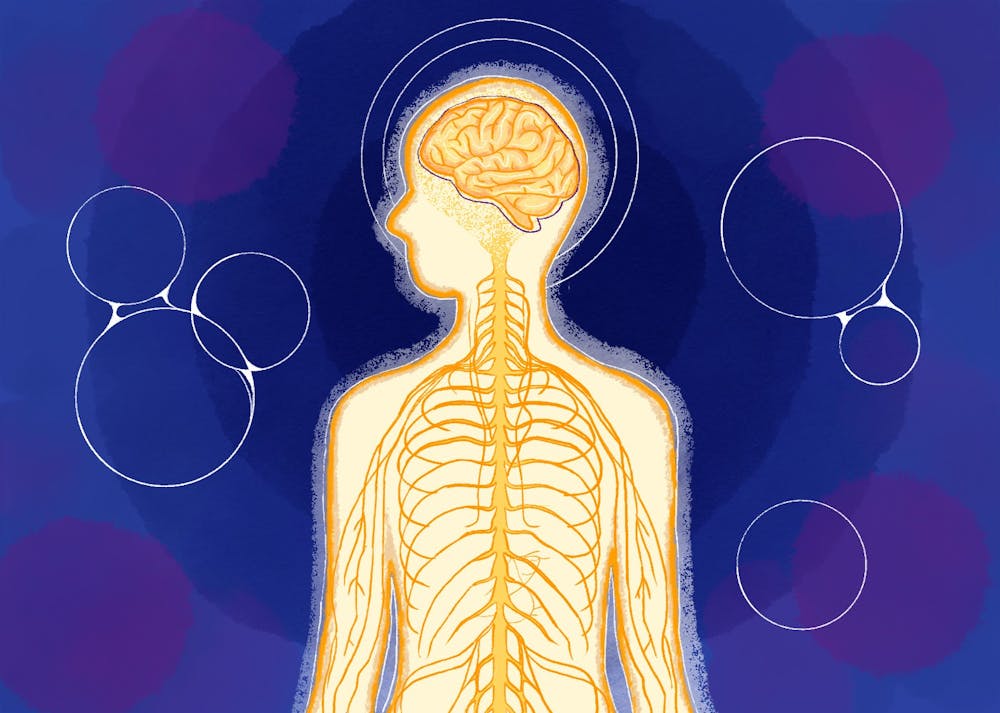Studies from one ASU lab seek to better understand how neurological conditions, such as autism, affect how the brain ages, and there are meaningful ways to participate for anyone who is interested.
Founded in 2016 by associate professor B. Blair Braden, the Autism and Brain Aging lab uses neurology to develop support for adults with autism. The lab is in need of neurotypical adults, or adults who are not autistic, to use as research controls for their important work.
Braden explained that this lab is filling an important niche in neurological research, because current studies into autistic adults have been limited.
"I think everyone deserves to have an expectation of what aging is going to be like. And we have that kind of general expectation for the typical population … But how aging will affect autistic adults has been just kind of a real question mark for a lot of years," Braden said.
While this is an under-researched area, there is still some research that suggests autism has serious comorbidities correlated with aging.
"Last year, a paper was published based on national Medicaid records that showed indeed, autistic adults are more likely to be diagnosed with an early onset Alzheimer's disease or related dementia. It's 2.6 times more likely if you have autism," said Braden.
This only heightens the importance of studying aging in people with autism to address these potential neurological concerns.
At the lab, one form of research is program development for adults with autism, including Strengthening Skills, a behavioral intervention program.
"Before the pandemic, we did classes in person, and we did brain imaging before and after participants went through these mindfulness classes, and we saw all kinds of improvements in comorbid symptoms like depression and anxiety," Braden said.
"When the pandemic happened, we started working with app companies so we could work remotely with participants, and we just had a paper accepted that shows a mindfulness app is also effective in reducing depression in autistic adults," said Braden.
The classes and the app are designed to give autistic people support to reduce the symptoms of comorbidities, especially those that occur more often in adults.
The biggest project at the lab is a longitudinal study of the neurological differences in aging neurotypical adults and adults with autism.
"There is a cohort of about 120 adults that we follow every two years," Braden said. "We do a big cognitive assessment and we ask them all kinds of questions about their symptoms. And then we do brain imaging to get different structural and functional pictures of the brain."
The longitudinal study is also how the lab connects to autism research outside of ASU, through partnerships with the Southwest Autism Research and Resource Center (SARRC) and the Barrow Neurological Institute (BNI).
"SARRC has been traditionally one of our partners for recruiting autistic adults to participate in our study. But then most recently, (there was) the clinical trial in partnership with them," Braden said.
Nicole Matthews, director of research at SARRC, explained that the Autism and Brain Aging Lab also uses SARRC's clinical resources.
"We conduct intake assessments for the majority of Dr. Braden's projects. This means that a member of our team completes the Autism Diagnostic Observation Schedule (ADOS-2)," Matthews said.
SARRC and the Autism and Brain Aging Lab will continue their partnership for future projects.
"We are also in the process of applying for funding to conduct additional research on the Strengthening Skills program," Matthews said.
Students interested in this work and future work from the Autism and Brain Aging Lab are welcome to contact Braden to join and learn.
"It's something that students need to really have a lot of time ahead of them to dedicate to learning, and a big chunk of time available in any given semester. But email me! Send me a resume or CV," Braden said.
Destiny Ogbeama, a senior studying biomedical sciences and family and human development, is an undergraduate researcher and cognitive tester at the lab.
"Autism didn't become an official diagnosis until around the 80s. So we're just kind of now seeing older adults with autism. There's all this support for children with autism, especially in school … So I wanted to be a part of that change to kind of help older autistic adults navigate their life," Ogbeama said.
Working at the lab has been an opportunity for both professional and personal development for Ogbeama.
"I feel like working directly with the participants has definitely put me out of my comfort zone. So I learned to be more comfortable talking to people. I have learned organizational skills. I've learned how to collect data and do data entry and also presentation skills," she said.
However, the lab is not just looking for student researchers. Crucially, the lab needs more adult, neurotypical people to use as controls in their large study.
"We are still looking for participants. Our longitudinal study is always recruiting on a rolling basis. Participants need to be over the age of 40," Braden said.
Anyone interested that meets the requirement can contact the lab using their website.
Edited by Annie Graziano, Reagan Priest and Grace Copperthite.
Reach the reporter at syramir2@asu.edu and follow @nerdyoso on Twitter.
Like The State Press on Facebook and follow @statepress on Twitter.
Sophia RamirezManaging Editor
Sophia is a senior studying biological sciences. This is her fifth semester with The State Press. She has also worked as a science and technology reporter.
Continue supporting student journalism and
donate to The State Press today.




